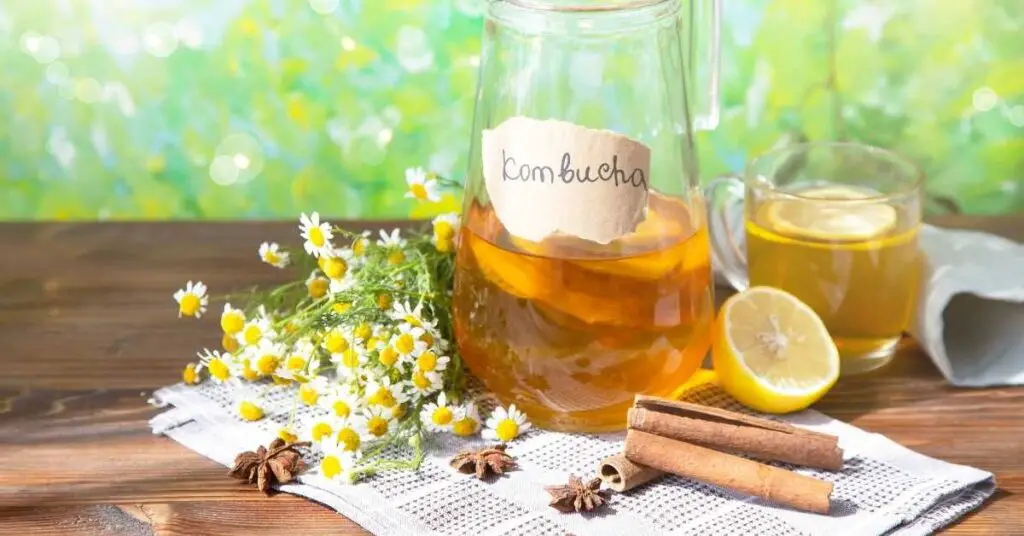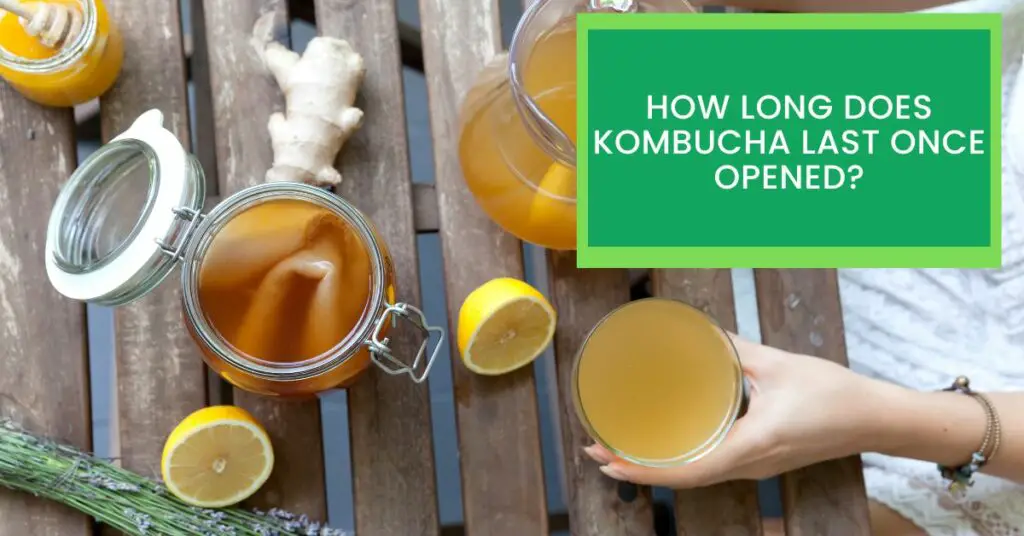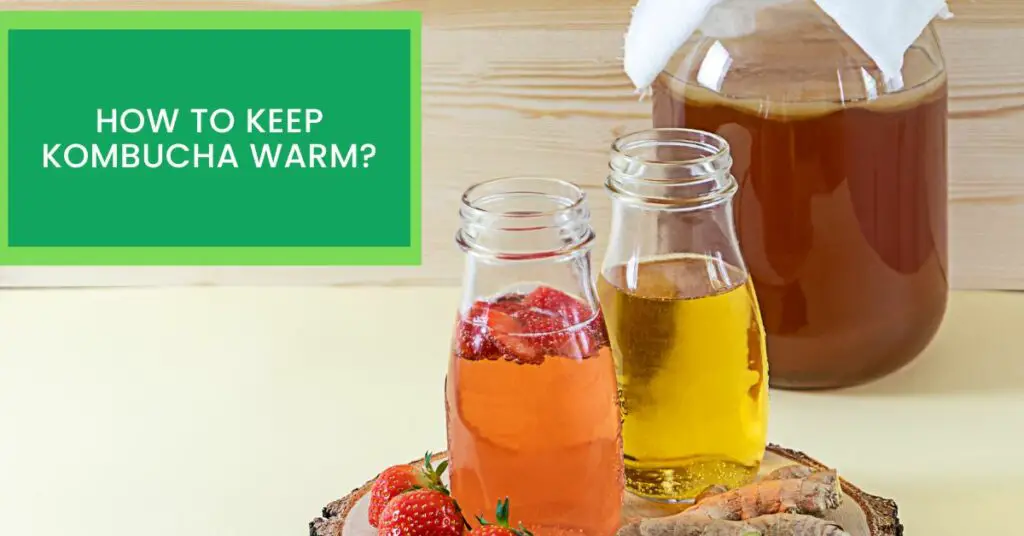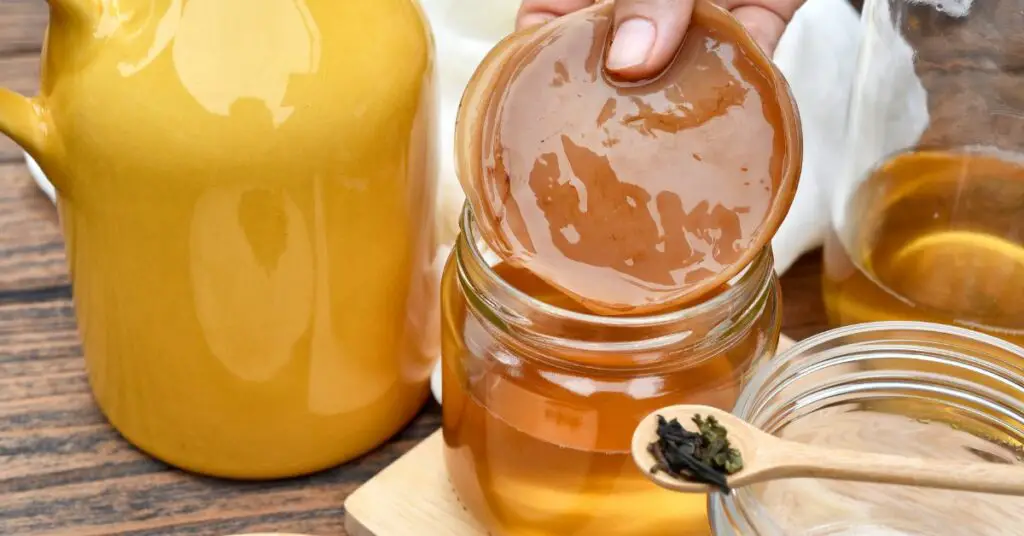Kombucha is a fermented tea that has gained popularity in recent years for its alleged health benefits. But many people find the taste of kombucha to be unpleasant, especially when it is made with black tea. One possible reason for this is that black tea contains high levels of tannins, which can give kombucha a sour or vinegar-like flavor.If you’ve ever tasted kombucha, then you know that it has a strong vinegary flavor. And while some people enjoy the taste of kombucha, others find it to be too strong or unpleasant. So what is it about kombucha that gives it this distinctive flavor?
Kombucha is a fermented drink that has been around for centuries. The taste of kombucha can be attributed to the production of organic acids during the fermentation process. These acids are produced by bacteria as they convert alcohol into vinegar. As the acids are synthesized, the kombucha becomes more acidic, resulting in a harsher, more bitter flavor.
However, the exact taste of kombucha will vary depending on the type of bacteria used, the length of fermentation, and other factors. Ultimately, kombucha’s distinct taste is due to the unique combination of acidic and microbial elements that are present in the drink.
What acids are present in kombucha, which makes it taste like vinegar?
Kombucha is a popular fermented drink made from sweetened black or green tea. During the fermentation process, bacteria and yeast feed on the sugar in the tea, producing gluconic acid and acetic acid. These acids give kombucha its characteristic sour taste.
Gluconic acid
This is produced by the bacteria Gluconobacter, which is found in high concentrations in kombucha. Acetic acid is produced by Acetobacter, another type of bacteria that is commonly found in kombucha.
Acetic Acid
While both acetic acid and vinegar are made from alcohol, they contain slightly different chemical compositions. Vinegar is typically produced by controlled fermentation, whereas kombucha is an uncontrolled fermentation process. As a result, the levels of Acetobacter in kombucha may be higher than those found in standard vinegar products.
Why does the taste of kombucha vary between different brands and types?
The flavor of kombucha can also be influenced by factors such as tea type, sugar content, and duration of fermentation. For example, using green tea instead of black tea will give kombucha a lighter color and less acidic taste. Additionally, some people find that heavily-sugared versions of kombucha can taste overly sweet and syrupy.
Can you reduce the vinegar flavour of kombucha?
Kombucha is a delicious, probiotic-rich drink that has many health benefits. However, some people find the vinegar flavor to be too strong. Luckily, there are a few ways to reduce the vinegar flavor of kombucha. One method is to start with a small amount of kombucha culture, or “inoculum.” This will result in a weaker vinegar flavor. Another way to reduce the vinegar flavor is to taste the kombucha daily and stop fermentation when the flavor is balance is right for you. By following these tips, you can enjoy all the benefits of kombucha without the vinegary taste.
What are some other ways to reduce the vinegar flavor of kombucha?
There are several other techniques that can be used to reduce the vinegar flavor in kombucha. For example, adding fruits or herbs to your brew can help balance out the sour taste. You could also try experimenting with different teas or sweeteners, such as honey or maple syrup. Additionally, trying different fermentation times and temperatures may be helpful in reducing the acidity of kombucha. Ultimately, finding a balance between sweetness and acidity that is right for you will depend on your personal preferences and brewing techniques. So if you’re looking for a less vinegary kombucha, there are plenty of options to explore!
How to use fermented kombucha
Kombucha is a fermented beverage that has been enjoyed for centuries. The fermentation process imparts a number of health benefits, as well as a unique flavor. While many people simply enjoy kombucha as-is, there are a number of ways to use it in recipes.
Fermented kombucha can be used as the pickling brine for vegetables or fruits. This will impart a subtle kombucha flavor to the final product. Kombucha can also be used to make sauces and salad dressings. The addition of a vinegar in a sauce is the secret to making the flavors shine–use your over-fermented kombucha to serve the same purpose!
Kombucha can also be used to make candy. Kombucha candies are a delicious and healthy treat. Kombucha mayo is another popular recipe. This probiotic-rich condiment is perfect for sandwiches and salads.
For those who find the flavor of kombucha too strong, it can be blended with a new batch of kombucha to reduce the bitterness. Fermented kombucha can also be used to make ricotta cheese. This easy recipe only requires a few ingredients and results in a flavorful and healthy cheese.
Finally, fermented kombucha can be used to start a sourdough starter. This recipes requires time and patience, but the results are worth it! A sourdough starter is the key to making delicious sourdough bread. Using kombucha will give your bread a unique flavor that sets it apart from traditional sourdough breads.
How to keep your kombucha from tasting like vinegar.
Anyone who has ever made homemade kombucha knows that it can sometimes end up tasting more like vinegar than the slightly sweet, slightly fizzy beverage we all know and love. While there are many variables that can affect the final flavor of kombucha, there are a few simple tips that can help to keep your kombucha from tasting too vinegary.
First, ferment for less time. The longer kombucha ferments, the more sour it will become. If you’re aiming for a less vinegary flavor, stop the fermentation process sooner rather than later.
Second, ferment at a cooler temperature. Kombucha fermentation is an exothermic reaction, meaning that it produces heat. The warmer the temperature, the faster the fermentation process will occur. As a result, kombucha fermented at a higher temperature is more likely to be vinegary than kombucha fermented at a lower temperature. By following these simple tips, you can help to ensure that your kombucha turns out nice and crisp – not sour and vinegary.
Conclusion
There are many factors that can influence the flavor of kombucha, including the tea type and sugar content. If you are struggling with a strong vinegar flavor in your kombucha, there are several techniques you can try to reduce it. For example, adding fruits or herbs to your brew can help balance out the sour taste. You can also experiment with different fermenting times, temperatures, and sweeteners to find a balance that works for you. Ultimately, finding the right combination of ingredients and brewing techniques is key to keeping your kombucha from tasting like vinegar. So if you’re looking for a tasty, probiotic-rich beverage without the harsh flavor, give kombucha a try!
FAQs
Why does kombucha sometimes taste vinegary?
Kombucha can taste vinegary when it is over-fermented, leading to an increase in acetic acid levels, which gives it the distinctive vinegary taste.
How can I fix vinegary kombucha?
To fix vinegary kombucha, you can try diluting it with sweet tea or fruit juice to balance out the sourness. Additionally, using a shorter fermentation time and keeping a closer watch on the brewing process can prevent the development of a strong vinegary flavor.
Should kombucha taste like vinegar?
While kombucha typically has a slightly vinegary taste due to the fermentation process, it should not have an overwhelmingly strong vinegar flavor. The ideal balance is a combination of sweet, sour, and a hint of acidity.
How do I make kombucha that doesn’t taste like vinegar?
To prevent your kombucha from tasting too vinegary, control the fermentation process by monitoring the brew time and tasting it regularly. Stopping the fermentation at the right moment can help maintain a balanced flavor profile without excessive vinegar notes.
Can a kombucha SCOBY cause a sour or vinegary taste?
Yes, a kombucha SCOBY (symbiotic culture of bacteria and yeast) is responsible for the fermentation process that creates the tangy, slightly vinegary taste in kombucha. Controlling the SCOBY’s activity and brewing duration is crucial for achieving the desired flavor.
What should I do if my kombucha smells like vinegar?
If your kombucha smells strongly of vinegar, it might indicate that it has fermented for too long. Taste the kombucha to assess the flavor, and if it’s too sour, you can balance it out by diluting it with fresh sweet tea or fruit juice.





